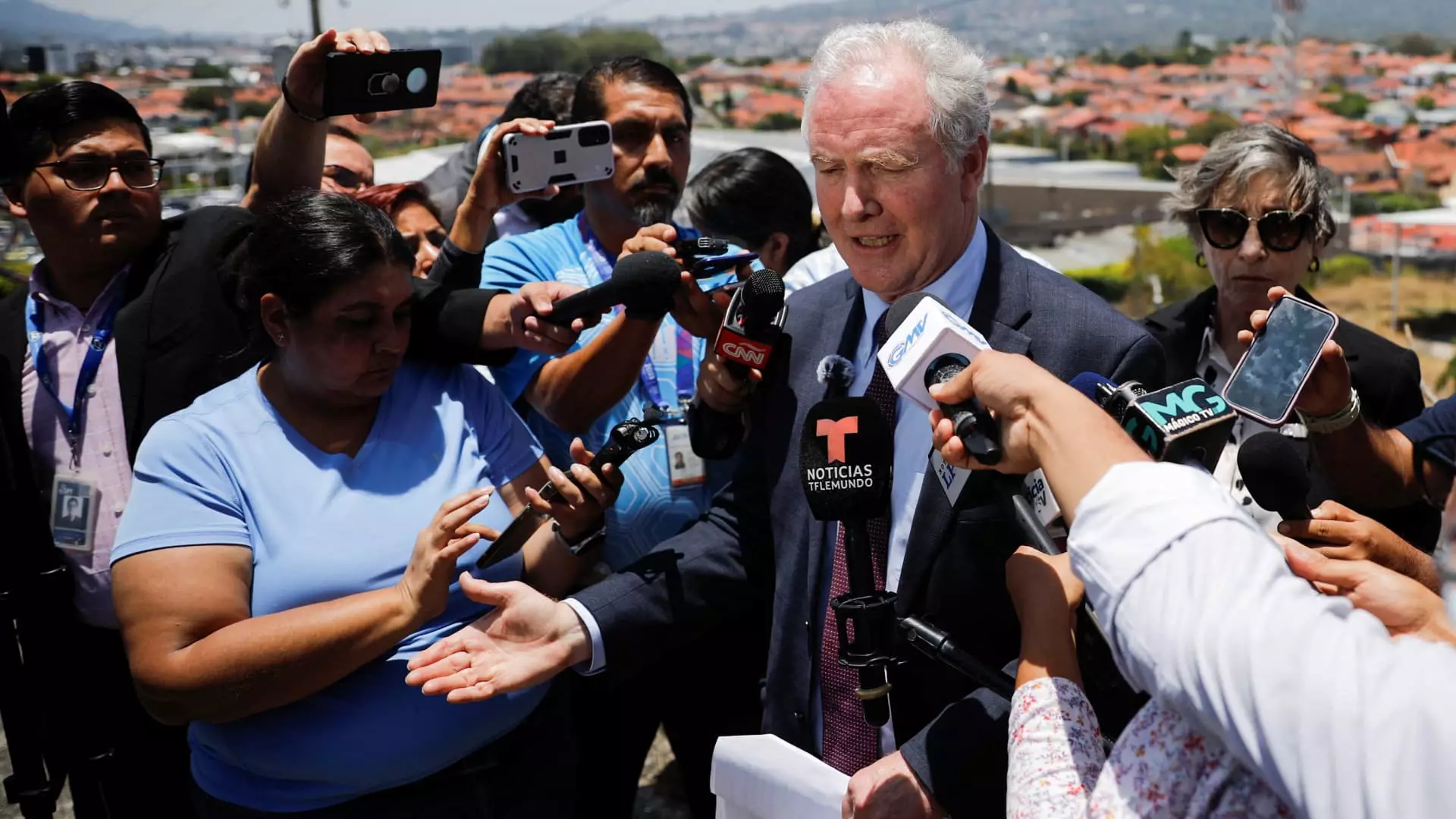In the contemporary political landscape, where the rule of law has become a tenuous thread, Senator Chris Van Hollen’s recent visit to El Salvador represents a much-needed commitment to due process. His mission—centered around the rights of Kilmar Abrego Garcia, a man wrongfully deported from the U.S.—underscores the gravity of preserving constitutional protections that belong to all citizens, no matter the circumstances surrounding their plight. Van Hollen’s assertion that honoring the rights of one individual is fundamentally tied to the rights of every American resonates deeply, especially in a moment when those very rights seem threatened.
The Dehumanization of Immigration Issues
Garcia’s situation is emblematic of a broader trend in which individuals are treated as collateral damage in the political theater of immigration. The previous administration’s aggressive stance led to a myriad of wrongful detentions and deportations, often rooted in a dehumanizing view of immigrants. Van Hollen’s emphasis on “defending the rights of this man to due process,” reflects not just on Garcia’s individual case, but also on the pervasive system that risks undermining our legal integrity. The fact that the Trump administration effectively acknowledged their wrongdoing in court adds a layer of urgency to this issue; if the highest levels of government can flout the law, what message does that send to the citizenry?
An Erosion of Constitutional Safeguards
As Van Hollen pointedly remarked during his media appearances, the denial of Garcia’s rights is not merely an isolated incident but a threat to the constitutional framework that underpins the United States. This reality necessitates a critical examination of how the erosion of rights for one group can lead to a slippery slope for all. When laws designed to protect the innocent can be bypassed, it lays the groundwork for a systemic failure that ultimately harms the fabric of democracy itself. Senators like Van Hollen are tasked not only with championing legal justice for individuals like Garcia but also with safeguarding the constitutional rights of every American.
Political Will or Legal Obligation?
In discussions surrounding Garcia’s case, the refusal of El Salvador’s President, Nayib Bukele, to cooperate with the U.S. government highlights a complex intersection of law and politics. The Trump administration’s inability to fulfill what the Supreme Court mandated—a facilitation of Garcia’s return—screams of a governmental failure that transcends mere administrative errors. It raises the question of whether political will can and should take precedence over legal obligations. In a world where international diplomacy is often leveraged for political gain, the plight of individuals must not slip through the cracks.
Standing Up for Democracy
Senator Van Hollen’s words echo louder than his actions; they draw attention to a pivotal truth: defending one person’s rights is an act of defiance against a system that constantly teeters on the brink of injustice. As citizens, we must pay heed to these developments; our democracy thrives on the premise that the scales of justice should remain balanced and unyielding. The ongoing fight for constitutional rights is not merely a legal stance but an ideological battle for the moral compass of our nation—a reminder that justice delayed is justice denied, and that every voice raises not just a singular call for dignity but a collective plea for the integrity of our American values.


Leave a Reply